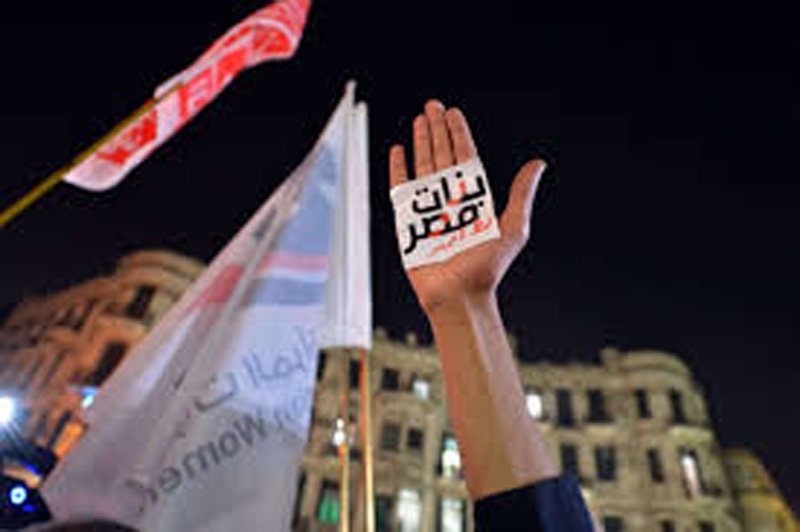
CAIRO: A climate of fear has gripped Egypt's #MeToo movement as the arrests of witnesses in a high-profile rape case threaten to derail efforts to curb male sexual violence in the Arab country. A group of nine men from wealthy families are suspected of drugging and gang-raping a young woman in Cairo's luxury Fairmont hotel and circulating a video of the assault. It allegedly took place in 2014 but the allegations only emerged online in July and a complaint was filed in early August.
Five suspects were arrested, three of them in Lebanon which handed them over to Egyptian authorities this week. Another four fled to the UK and the US, according to a women's activist connected to the case who requested anonymity. But events have taken a sudden U-turn. At the end of last month, authorities also arrested four witnesses, along with two acquaintances with no direct links to the case, according to Human Rights Watch (HRW).
The US-based rights monitor said the six have been accused of "violating laws on 'morality' and 'debauchery'". Several were pressured to alter their accounts, HRW cited activists as saying. Hoda Al-Sadda, an academic at Cairo University, expressed concern at the developments. "That a clear-cut case with tangible evidence turns into a case where the culprits become the victims and witnesses are accused is… frightening," Sadda said.
Some of the detained witnesses have also been the target of smear campaigns, with compromising images posted on the Internet. The anonymous activist told AFP that some had been forced to undergo "virginity tests" and anal examinations - practices HRW describes as "internationally discredited… with no scientific validity to 'prove' same-sex conduct or 'virginity'."
Rothna Begum, a senior women's rights researcher at HRW, voiced alarm. "The case against the witnesses and the smear campaign against them and the rape survivor send a chilling message to survivors of sexual violence and witnesses that they can go to prison if they report sexual violence," Begum said.
It is not the first time those denouncing violence against women in Egypt have found themselves targeted. Earlier this year, teenager Menna Abdel-Aziz, her face battered and bruised, posted a video on social media in which she said she had been gang raped. The authorities' response was swift: They arrested the alleged attackers, along with the 17-year-old girl, charging them all with "promoting debauchery".
Even female social media influencers have been in the authorities' sights. In July, five were sentenced to jail time on charges of violating public morals over content posted to video-sharing app TikTok. In the Fairmont case, lawyers have fallen silent. And Egypt's National Council for Women, which had encouraged witnesses to come forward, has instead been accused of throwing them to the lions. The head of the council did not respond to an AFP request for comment.
The administrator of Assault Police, an Instagram account advocating justice for rape survivors that had reported the case, suspended the account for several weeks after receiving threats, HRW said. Egypt's parliament in August approved amendments to the criminal code granting victims of sexual assault the right to anonymity.
But developments since have dashed hopes for real progress. Several pro-regime media outlets have given a totally different account of the alleged gang rape, indicating an orgy that went awry. Sadda, the academic, expressed pessimism at the impact on what had been a resurgent #MeToo movement in Egypt. The developments "destroy the credibility of institutions" like the National Council for Women, she said, and could sink "a dynamic social movement". - AFP

